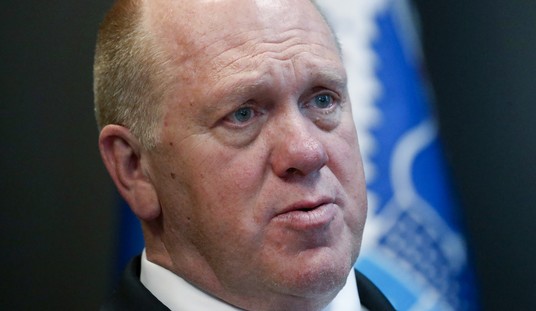=========
=========
Promoted from the diaries by streiff. Promotion does not imply endorsement.
=========
=========
The First Amendment to the Constitution says:
Congress shall make no law respecting an establishment of religion, or prohibiting the free exercise thereof; or abridging the freedom of speech, or of the press; or the right of the people peaceably to assemble, and to petition the Government for a redress of grievances.
Through the doctrine of incorporation of the Bill of Rights to apply to states and localities as well, the very simple language of the First Amendment guarantees our natural right to freedom of speech, religion, the press and assembly from all of our various levels of government.
In the famous Pentagon Papers case, while The New York Times was the primary litigant, The Washington Post joined the case, after the Nixon Administration appealed the decision of U.S. district court. Judge Murray Gurfein not to enjoin the Post from publishing its copy. The Post fought for, and won, their freedom of the press rights under the First Amendment.
So it’s with some irony that I read this article in the Post’s OpEd section:
Why America needs a hate speech law
By Richard Stengel¹ | October 29, 2019 | 8:20 a.m. EDT
When I was a journalist, I loved Justice Oliver Wendell Holmes Jr.’s assertion that the Constitution and the First Amendment are not just about protecting “free thought for those who agree with us but freedom for the thought that we hate.”
But as a government official traveling around the world championing the virtues of free speech, I came to see how our First Amendment standard is an outlier. Even the most sophisticated Arab diplomats that I dealt with did not understand why the First Amendment allows someone to burn a Koran. Why, they asked me, would you ever want to protect that?
It’s a fair question. Yes, the First Amendment protects the “thought that we hate,” but it should not protect hateful speech that can cause violence by one group against another. In an age when everyone has a megaphone, that seems like a design flaw.
It is important to remember that our First Amendment doesn’t just protect the good guys; our foremost liberty also protects any bad actors who hide behind it to weaken our society. In the weeks leading up to the 2016 election, Russia’s Internet Research Agency planted false stories hoping they would go viral. They did. Russian agents assumed fake identities, promulgated false narratives and spread lies on Twitter and Facebook, all protected by the First Amendment.
The Russians understood that our free press and its reflex toward balance and fairness would enable Moscow to slip its destructive ideas into our media ecosystem. When Putin said back in 2014 that there were no Russian troops in Crimea — an outright lie — he knew our media would report it, and we did.
It’s an interesting beginning, especially since it is only tangentially connected to the rest of the article. Mr Stengel continues to attack the idea that we protect “hate speech,” which he characterized as:
Hate speech has a less violent, but nearly as damaging, impact in another way: It diminishes tolerance. It enables discrimination. Isn’t that, by definition, speech that undermines the values that the First Amendment was designed to protect: fairness, due process, equality before the law? Why shouldn’t the states experiment with their own version of hate speech statutes to penalize speech that deliberately insults people based on religion, race, ethnicity and sexual orientation?
So, if someone says that homosexual activity is an abomination unto the Lord, or that people who do such things should be put to death, he has said something that Mr Stengel believes ought to be subject to hate speech laws? ‘Twould seem that Mr Stengel would outlaw the Bible! I suppose it would also mean outlawing the Quran, something the author said the Arabs he met wondered why we didn’t protect, for the Islamic holy book also condemns and outlaws homosexuality (Quran 7:80-84, 26:165-166, 4:16)
Mr Stengel complained that Dylann Roof and Omar Mateen were inspired by the ‘hate speech’ of others, saying “Speech doesn’t pull the trigger, but does anyone seriously doubt that such hateful speech creates a climate where such acts are more likely?”
But I return to his opening paragraphs. They didn’t concern hate speech, but the fact he believes that the efforts of foreign actors helped retain Hillary Clinton as a private citizen. In the end, that’s what so many of the articles we see concerning restrictions on speech are about. Mr Stengel exercised his freedom of speech, and the editors of the Post used their freedom of the press, to attack the First Amendment.
This OpEd piece in the Post is hardly the only example. As noted earlier this month, The New York Times published an article “Free Speech Is Killing Us,” and previously gave Parker Malloy, a transgender activist, space to claim that censorship of criticism of transgenderism actually promotes free speech.
The Times, with its slogan All the News That’s Fit to Print, and the Post, with Democracy Dies in Darkness on its masthead, are now leading the charge to restrict what people, other people, that is, can publish, so that the editors’ opinions on what’s fit to print prevails, and no one can print anything else, on what facts should escape the darkness should prevail, while the rest remain quiet. Oh, the editors themselves are rather quiet on that, but the trend is there, with them selecting OpEd pieces to publish critical of the First Amendment, at least the First Amendment protections for other people.
___________________________________
¹ -Richard Stengel, a former editor of Time, is the author of “Information Wars” and was the State Department’s undersecretary for public diplomacy and public affairs from 2013 to 2016. In other words, he was an Obama Administration appointee.
___________________________________
Please visit my Red State story archive for more of my articles.
My personal website, The First Street Journal, includes articles not necessarily in Red State’s paradigm.
You can follow me on Twitter.













Join the conversation as a VIP Member